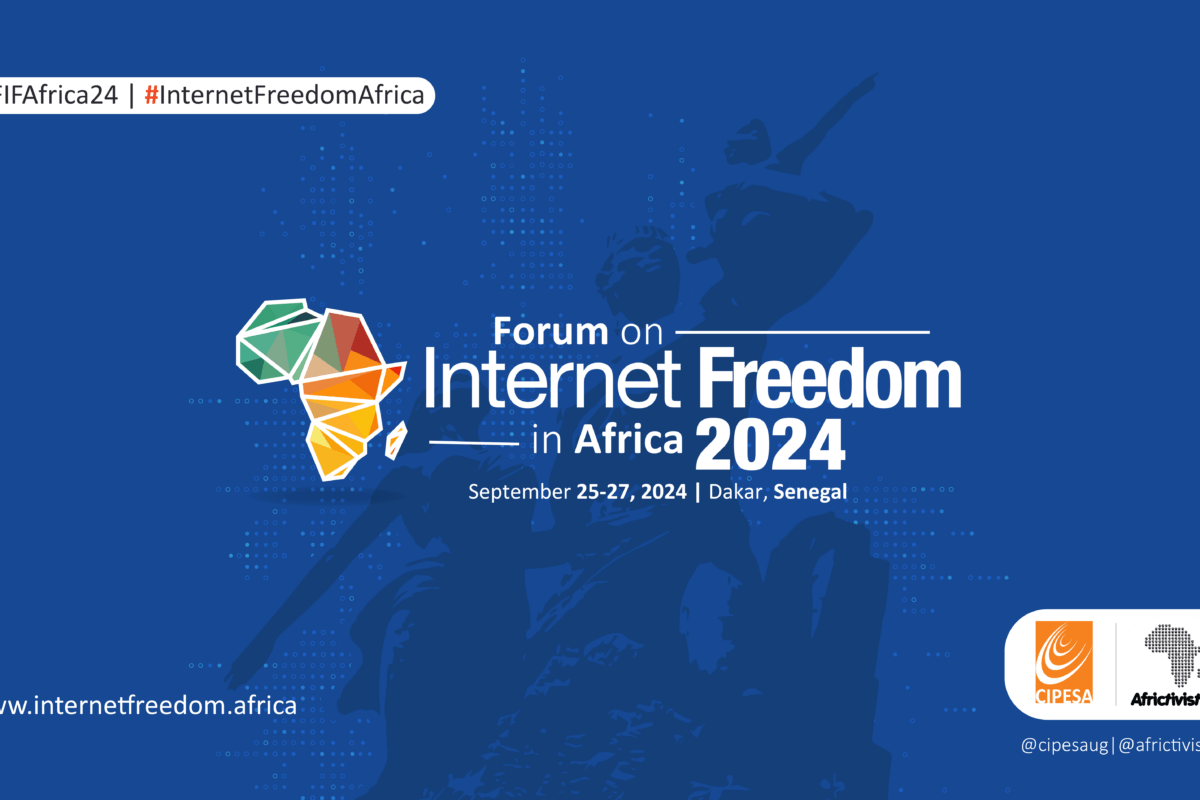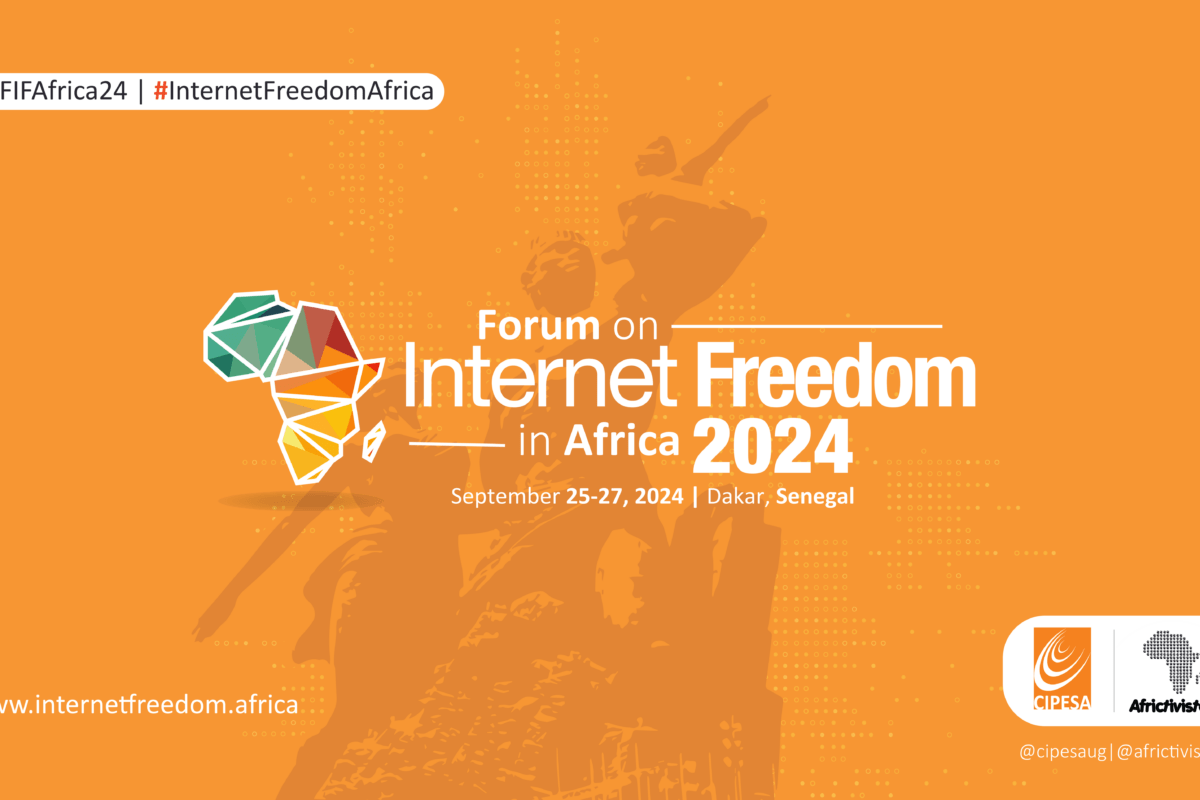FIFAfrica24 |
Cette semaine, le Forum sur la liberté d’Internet en Afrique 2024 (FIFAfrica24), l’événement majeur du continent en matière de droits numériques, se tiendra du 24 au 27 septembre 2024 à Dakar, au Sénégal. Le forum de cette année promet d’être une convergence passionnante entre les défenseurs des droits numériques, le secteur privé, les décideurs politiques et les acteurs de la société civile de toute l’Afrique et au-delà. Plus de 150 experts interviendront au cours de 55 sessions.
Le forum, qui en est à sa onzième édition, est organisé chaque année par la Collaboration sur la politique internationale des TIC pour l’Afrique de l’Est et l’Afrique australe (CIPESA). Cette année, le CIPESA co-organise l’événement avec AfricTivistes, basé à Dakar, marquant ainsi une étape importante dans les efforts en cours pour faire progresser la démocratie numérique, en particulier en Afrique francophone au cours de ce qui a été présenté comme l’Année de la Démocratie.
FIFAfrica24 débute par deux jours de pré-événements (24-25 septembre), qui comprennent des réunions et des ateliers stratégiques ainsi que des sessions de formation destinées à doter les participants de compétences critiques et à favoriser un dialogue constructif sur les questions relatives aux droits numériques. Ils seront suivis de deux jours d’accès public (26-27 septembre), au cours desquels les participants s’engageront dans des discussions approfondies autour de sept thèmes :
- Inclusion numérique
- Résilience numérique
- Liberté d’expression et accès à l’information
- Désordre de l’information (désinformation)
- Implications de l’IA
- Gouvernance et politique
- Création de mouvements
Voir l’agenda | Découvrir les intervenants
En plus des tables rondes qui suscitent la réflexion et des conférences éclair dynamiques, FIFAfrica24 accueillera une exposition dynamique où neuf exposants présenteront leur travail. Cette exposition offre aux participants une occasion unique d’explorer des projets innovants et de s’engager directement avec un large éventail d’acteurs qui font évoluer le paysage numérique de l’Afrique.
En outre, FIFAfrica24 accueillera un centre de sécurité numérique bilingue, offrant un soutien pratique en anglais et en français pour aider les participants à renforcer leur résilience numérique. Ce centre constituera une ressource essentielle pour les activistes, les journalistes et les organisations de la société civile qui travaillent dans des environnements difficiles.
Alors que nous continuons à relever les défis de l’ère numérique, FIFAfrica24 offre une opportunité unique de construire des collaborations et de faire progresser la protection des droits numériques à travers le continent.
Pour plus d’informations, visitez le site web de FIFAfrica24 ou suivez-nous sur les médias sociaux en utilisant #FIFAfrica24 et #InternetFreedomAfrica.
Veuillez adresser toute question relative aux médias à [email protected].
À propos d’AfricTivistes
Créée en 2015, AfricTivistes est une organisation panafricaine qui promeut et défend la démocratie, la bonne gouvernance et les droits de l’homme par le biais du numérique. A travers ses programmes, AfricTivistes s’efforce de favoriser la transformation numérique et l’amélioration de la citoyenneté en Afrique, sous l’impulsion d’acteurs du changement.
A propos de CIPESA
Le CIPESA a été créé en 2004 en réponse aux conclusions du rapport Louder Voices pour l’ancien ministère britannique du développement international (DFID), qui citait le manque d’accès facile, abordable et opportun à l’information sur les questions et les processus liés aux TIC comme un obstacle majeur à l’élaboration de politiques efficaces et inclusives en matière de TIC.
comme un obstacle majeur à l’élaboration de politiques efficaces et inclusives en matière de TIC en Afrique.
Le travail du CIPESA continue de répondre à une pénurie d’informations, de ressources et d’acteurs travaillant de manière cohérente au carrefour de la technologie, des droits de l’homme et de la société. Initialement créé pour se concentrer sur la recherche dans les pays d’Afrique de l’Est et d’Afrique australe, le CIPESA a depuis étendu ses efforts à la défense des droits, au développement des capacités et à la création de mouvements sur l’ensemble du continent africain.
À propos du Forum sur la liberté de l’internet en Afrique
FIFAfrica est un événement historique qui rassemble un large éventail d’acteurs de la gouvernance de l’internet et des droits numériques en Afrique et au-delà, afin de débattre des lacunes, des défis et des opportunités pour faire progresser la vie privée, la liberté d’expression, l’inclusion, la libre circulation de l’information, la participation civique et l’égalité des chances.
la libre circulation de l’information, la participation civique et l’innovation en ligne.
Au fil des ans, FIFAfrica est devenue une réponse vitale aux obstacles croissants auxquels est confrontée la liberté sur Internet dans les pays africains, notamment les menaces telles que les arrestations et l’intimidation des utilisateurs en ligne, les perturbations de l’Internet et la prolifération des lois et des réglementations inclusives qui étouffent le potentiel de la technologie numérique pour le développement socio-économique et politique sur le continent.
En plaçant la liberté de l’internet directement à l’ordre du jour des principales parties prenantes, notamment les décideurs africains, les opérateurs de plateformes mondiales, les entreprises de télécommunications, les régulateurs, les défenseurs des droits de l’Homme, les universitaires, les forces de l’ordre et les médias, la FIFAfrica ouvre la voie à des efforts concertés pour faire progresser les droits numériques en Afrique et promouvoir le modèle multipartite de la gouvernance de l’internet.
En 2023, FIFAfrica a marqué une décennie d’existence et en 2024, la première édition sera organisée en Afrique francophone. en Afrique francophone. Les éditions précédentes ont été accueillies en Ouganda, en Afrique du Sud, au Ghana, en Éthiopie, en Zambie et en Tanzanie.



